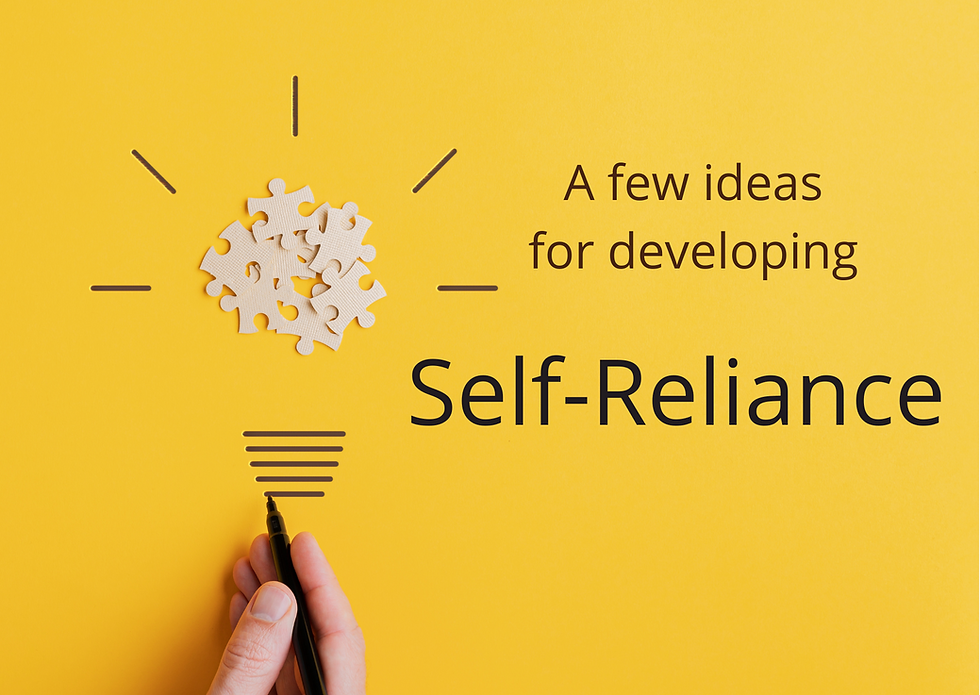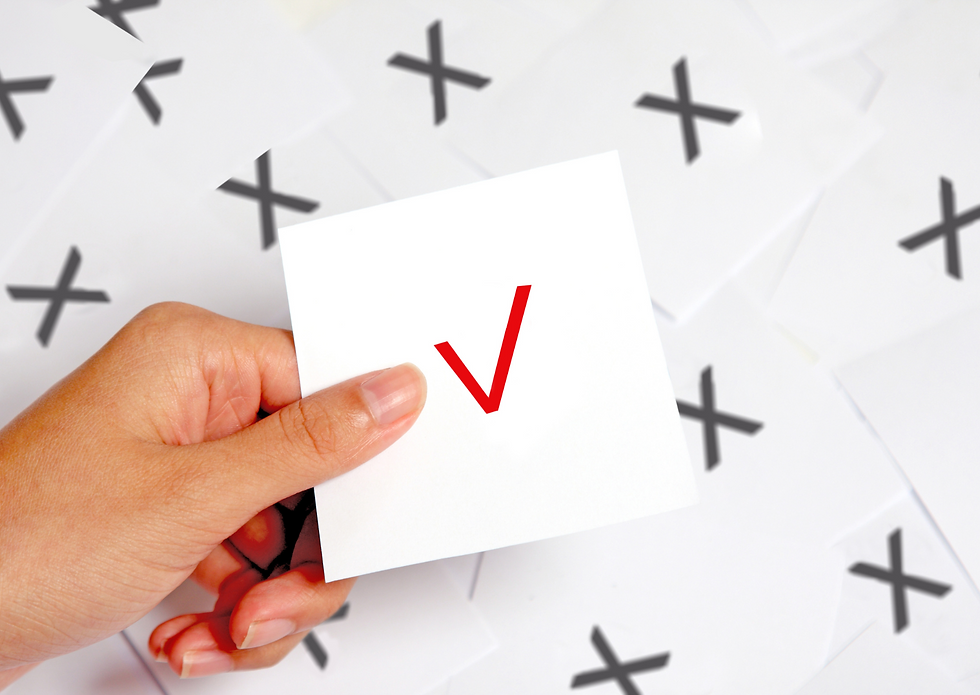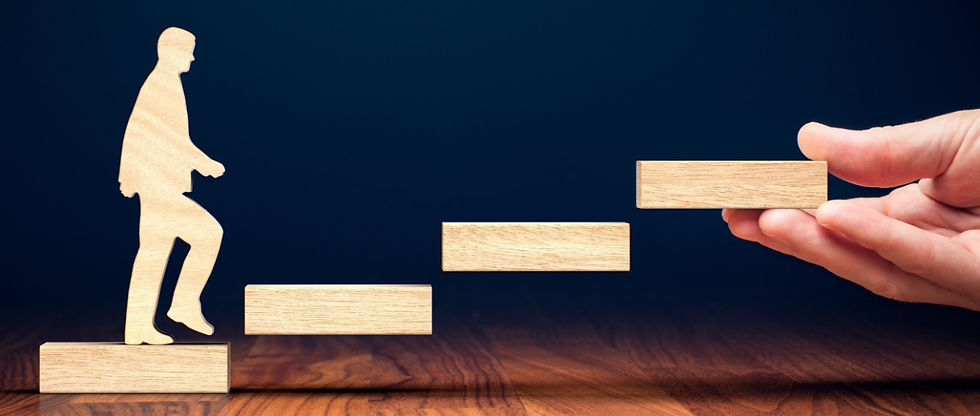Developing Self-Reliance
- Mary Ely
- Oct 19, 2022
- 4 min read
RocheMartin defines Emotional Intelligence by a set of 10 competencies and this is one in a series of blogs covering each one.

Self-Reliance is the ability to back yourself, take responsibility for your actions and what happens as a result
The 3 components of Self-Reliance are
Independence
You don’t rely on anyone else for what you need. You can think and decide for yourself.
Self-Belief
You are happy to act on what you think is the right choice.
This requires Self-Confidence, an emotional intelligence competency in its own right and covered in this blog.
Responsibility
...and you take responsibility for your actions and are accountable for what happens as a result.
To find out more and why it's so important, have a look at this blog.
A few ideas to increase your Self-Reliance

Remind yourself to ‘put your grown-up pants’ (or shoes) on
Remember - you have good reasons for the choices you make
Challenge yourself to stay on the ‘cause’ side of the Cause and Effect equation
Coaching
Remind yourself to ‘put your grown-up pants’ (or shoes) on
For me, this normally translates to a little internal pep talk along the lines of
“It’s time to put your big girl pants on Mary”.
Even in my 50’s there are times when I need to remind myself that I’m no longer a child.

Much as I’d love someone to come and do everything for me, make me feel better, tell me I'm great and that everything is going to be ok etc, I know I can’t rely on anyone else to do that for me as
I’m an independent adult
They might not! In which case I’ll be stuck, with no options
I might allow myself a short internal tantrum about this, but any ‘self-pity party’ has to stop quickly and I need to get on and do what needs to be done…which might just be saying nice things to myself, doing something to feed my soul or reminding myself of all my achievements and the good things in my life, however small they may seem at the time.
So...if you find your internal child is beginning to take over, what could you say to calm it down so you can be the independent adult you want (and need) to be?
Remember - you have good reasons for the choices you make
...and so does everyone else.
As I explain in this blog, moment to moment, every single one of us is doing the best we can and coming to what we think are the best choices and decisions, given the resources available to us at the time, which are:
what we've learnt from all our life experiences (including what we believe, value, our knowledge, skills, strengths etc),
the information we have available at the time and the bits of that we are using, and
how we are feeling
We'll never intentionally do something wrong or make a bad decision (and if we do, there's always a good reason hidden behind it...like doing something badly so you don't get asked to do it again!)
And we all think that our choice or decision is the right one as a result.

Once we see how things play out, we may wish we had made a different choice. Perhaps we'd missed a bit of information or because of how we were feeling we reacted in a different way, but in the moment we're always making the best choices we can.
And if we have the emotional intelligence competency of Adaptability, we will be open to considering feedback and different perspectives and changing what we think, which is a great strength to have...unless...as with any strength, we take it too far and start to think that we should always align to what someone else thinks and then lose our ability to rely on any of our own choices/opinions/decisions.
Which can happen.
From an early age, we’re told whether what we’ve done is good or bad, right or wrong.
And that early conditioning can make it easy to arrive in adulthood with the belief that everyone else's opinion is the 'truth’ or 'better' compared to what we think.
But that doesn't make it true.
We need to remember that our opinion is always valid.
Even if it feels like 'gut feel' or 'common sense', our opinions are based on a lifetime of experience.
So...
You have every right and reason to think what you think
Know that you've got a good reason for everything you choose and be prepared to explain it. AND be open to exploring other perspectives with all the other people in the world who are also walking around with good reasons for thinking what they think :)
Challenge yourself to stay on the ‘cause’ side of the Cause and Effect equation

Focusing on this helps build responsibility, independence and therefore self-reliance.
So what do I mean...
Whatever we do (cause) leads to something happening (effect).
If what we do doesn’t result in the effect that we planned, we might
blame someone or something else
it’s their fault
the dog ate my homework etc.
doubt our judgement to the extent that we feel helpless and stop trying. "Nothing I do works/is right, so why bother"
feel guilty - I should have / shouldn't have…but I had no choice...
But none of those things are helpful as they leave us on the ‘effect’ side of the equation – victims of circumstance and other people’s actions.
So what can you do to stay on the 'cause' side of the equation?
Challenge the assumptions that are keeping you on the effect side of the equation
What if that weren't true?
What if there was something else I could do, what might that be?
'Putting your grown-up pants on' and accepting responsibility for your part in what happened puts you back in the driving seat where you can work on finding a solution
Remember that feedback is a gift (as covered in this blog). There is always something you can learn and do to move forward
Have a look at this blog for some ideas on how to let go of any guilt
Coaching
Coaching is by far the most efficient, effective, engaging, empowering and enjoyable way to build any of the Emotional Intelligence competencies.
Helping you to develop, refine and embed your own personalised strategies for each competency.

If you’re interested in understanding your level of emotional intelligence using one of the RocheMartin assessments or would like to explore coaching for developing components of it like Self-Reliance, you can book a free call here.
And if you'd like to try out my monthly emails that provide a roundup of my blogs as well as other insights, you can sign up here.
Comments